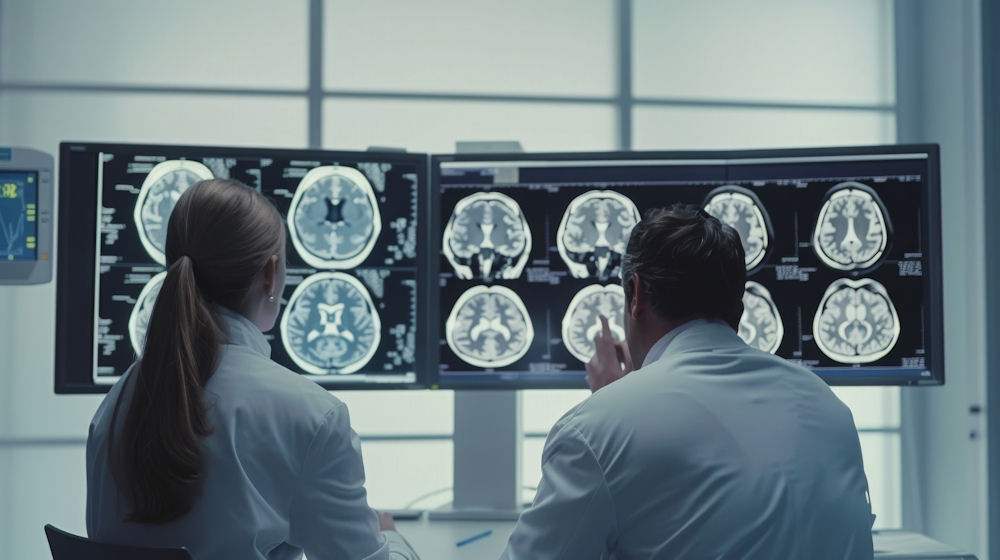Being neurodivergent is not about deficits but differences that bring unique strengths and perspectives to society. Conditions such as Autism Spectrum Disorder (ASD), ADHD, dyslexia, dyspraxia, and Tourette Syndrome are examples of neurodivergence. Symptoms of neurodivergence can make daily functioning more difficult for an individual.
Some neurodivergent symptoms such as repetitive behaviors or thoughts can be treated. For those facing mental health or substance use issues, Northern Illinois Recovery Center offers personalized care and a compassionate approach to treatment, promoting both mental health and recovery.

What Does Being Neurodivergent Mean?
Neurodivergence refers to the natural variations in human brain function, encompassing differences in how individuals think, learn, and process information. This concept challenges the notion of a single “normal” way of thinking, recognizing that diverse neurological patterns are inherent to the human experience. Embracing neurodiversity involves valuing these differences without judgment, acknowledging that each person’s cognitive processes contribute uniquely to society.
What Does Neurotypical Mean? Neurotypical vs Neurodivergent
The term neurotypical refers to individuals whose brain development and function align with what is considered the societal norm. Neurotypical people generally process information, learn, and communicate in ways that are expected and typical in their culture or environment. They often don’t experience the challenges commonly associated with neurodivergent conditions, such as sensory sensitivities or difficulties in executive functioning.
In contrast, neurodivergent individuals have cognitive and neurological differences that diverge from these norms. While neurodivergent traits can present unique challenges, they also come with strengths, such as creative thinking, attention to detail, and innovative problem-solving.
Understanding the difference between neurotypical and neurodivergent perspectives is key to fostering empathy and creating inclusive environments where everyone can thrive.
What Does It Mean When a Person Is Neurodivergent?
A neurodivergent individual has a brain that functions differently from the societal standard, leading to unique ways of perceiving and interacting with the world. These differences are not deficits but variations that can offer distinct strengths and perspectives. For instance, some neurodivergent individuals may excel in areas requiring attention to detail or creative problem-solving.
What Conditions Are Considered Neurodivergent?
Several conditions fall under the umbrella of neurodivergence, each characterized by unique cognitive patterns and ways of processing the world. Here’s an expanded look at some of the most well-known neurodivergent conditions, their descriptions, and associated symptoms:
Autism Spectrum Disorder is a developmental condition that impacts how individuals communicate, interact socially, and perceive the world around them. It’s described as a “spectrum” because it includes a wide range of presentations and severities. No two autistic people are the same, which highlights the rich diversity within this community.
Neurodivergent symptoms of ASD:
- Difficulty with nonverbal communication such as eye contact, facial expressions, or body language
- Challenges in understanding social cues or building relationships.
- A strong preference for routine and predictability. Sudden changes may feel overwhelming
- Intense focus on specific interests or topics, often called “special interests”
- Sensory sensitivities—things like sounds, lights, textures, or smells can feel overly intense or distressing
- Delayed or atypical speech and language development in some cases, though others may have advanced language skills
Despite these challenges, many autistic individuals offer unique strengths such as exceptional focus, memory, and creativity in their areas of interest.
Attention Deficit Hyperactivity Disorder is a neurological condition often marked by patterns of inattention, hyperactivity, and impulsivity. It affects both children and adults, although the symptoms can present differently across life stages.
Neurodivergent symptoms of ADHD:
- Difficulty focusing or sustaining attention, especially on tasks that are not engaging or stimulating
- A tendency to be easily distracted by external stimuli or internal thoughts
- Hyperactivity, which can manifest as fidgeting, restlessness, or an urge to be constantly on the move
- Impulsivity, such as interrupting others, speaking out of turn, or acting without fully considering the consequences
- Challenges with organization, time management, and completing tasks
- Hyperfocus on topics or tasks of interest, which may lead to exceptional productivity in those areas
Individuals with ADHD often bring high energy, creativity, and out-of-the-box thinking—qualities that enrich their workplaces and communities.
Dyslexia is a learning difference that specifically affects the ability to process written language. It’s not related to intelligence but instead stems from how the brain processes information. Dyslexia can make reading and writing a challenge, but people with this condition often excel in areas like problem-solving and creative thinking.
Neurodivergent symptoms of dyslexia:
- Difficulty decoding words, recognizing spelling patterns, or matching letters to sounds
- Slow or effortful reading that affects comprehension
- Frequent spelling errors or challenges with written expression
- Difficulty with verbal memory when recalling lists, sequences, or specific words
- Problems with phonemic awareness, such as identifying rhymes or breaking down words into sounds
Many individuals with dyslexia are highly creative thinkers with incredible strengths in visual or spatial reasoning, making them innovators in fields like art, design, and storytelling.
Dyspraxia, also known as Developmental Coordination Disorder (DCD), affects physical coordination and movement. It can influence fine and gross motor skills, making daily tasks like writing, tying shoelaces, or playing sports more difficult. However, those with dyspraxia often show tremendous perseverance and adaptability.
Neurodivergent symptoms of dyspraxia:
- Clumsiness or difficulty with motor tasks involving balance and coordination
- Challenges with fine motor skills, such as handwriting or buttoning clothing
- Problems with spatial awareness, which may affect tasks like driving or navigating spaces
- Difficulty planning and organizing movements can make multitasking physically challenging
- Fatigue from the extra mental energy required to perform physical tasks
Although individuals with dyspraxia face motor challenges, they often possess unique problem-solving strategies, strong empathy, and an intuitive understanding of others.
Tourette Syndrome is a neurological condition characterized by involuntary and repetitive movements or vocalizations known as tics. These tics can range from simple, like blinking, to more complex, like coordinated movements or phrases.
Neurodivergent symptoms of Tourette Syndrome:
- Motor tics, such as eye blinking, shoulder shrugging, or head jerking
- Vocal tics, which might include repetitive sounds, throat clearing, or words
- Tics that may worsen during stress, excitement, or fatigue but may improve with relaxation or focus on specific tasks
- Challenges related to suppressing tics, which can sometimes increase mental and physical strain
- Co-occurring conditions like ADHD or OCD, which are common in individuals with Tourette
Many individuals with Tourette Syndrome develop resilience, emotional strength, and an ability to view the world with unique perspective and humor.
Who Is Neurodiverse?
Neurodiversity encompasses a broad spectrum of individuals whose neurological development and functioning differ from the norm. This includes people with conditions like autism, ADHD, dyslexia, and others. It’s important to note that neurodiversity is a natural and valuable form of human diversity, contributing to the richness of human experience.

What Are Neurodivergent Symptoms in Adults?
Neurodivergent symptoms in adults vary depending on the specific condition but may include:
- Difficulty with Time Management: Adults with ADHD, for example, may struggle with meeting deadlines or organizing tasks effectively.
- Sensory Overload or Sensitivity: Loud noises, bright lights, or crowded spaces might feel overwhelming for some neurodivergent adults, such as those with autism.
- Social Challenges: Difficulty interpreting social cues, maintaining relationships, or navigating group dynamics is common in conditions like autism or social anxiety disorder.
- Emotional Dysregulation: Adults may find it harder to manage emotions, leading to frustration, irritability, or feelings of being overwhelmed.
- Repetitive Behaviors or Routines: Preference for structured environments or repetitive actions might be a coping strategy for managing stress.
- Hyperfocus: While struggling with attention in some areas, neurodivergent individuals might demonstrate an intense focus on subjects of interest.
Recognizing these symptoms can help adults understand their unique cognitive traits and seek support when needed. At Northern Illinois Recovery Center, we offer mental health care tailored to individual needs, supporting adults in managing both neurodivergence and co-occurring conditions like addiction.
How to Accommodate Someone With Neurodivergent Symptoms
Supporting neurodivergent individuals involves creating inclusive environments that recognize and accommodate their unique needs:
- Flexible Work Arrangements: Offering options like remote work or flexible hours can enhance productivity and comfort.
- Sensory-Friendly Spaces: Designing environments with controlled lighting and noise levels to reduce sensory overload.
- Clear Communication: Using straightforward language and providing written instructions to aid understanding.
- Personalized Support: Tailoring support strategies to individual preferences and needs, recognizing that one size does not fit all.
Implementing these accommodations fosters inclusivity and allows neurodivergent individuals to thrive.

Are Neurodivergent People More at Risk for Addiction?
Neurodivergent individuals may face unique challenges that could increase their risk of developing substance use disorders. Conditions like ADHD, autism, and anxiety disorders are often accompanied by difficulties in emotional regulation, heightened stress, or social challenges, which might lead some individuals to use substances as a coping mechanism. For example, individuals with ADHD may use stimulants or other substances to self-medicate symptoms of inattention or impulsivity.
Research also suggests that neurodivergent individuals often face stigma, isolation, and misunderstanding, which can exacerbate feelings of depression or anxiety. These factors may drive a higher risk for addiction as they seek relief or escape from these struggles. Recognizing and addressing these risks early, along with providing tailored treatment, can significantly help in managing both neurodivergence and substance use issues.
At Northern Illinois Recovery Center, we understand the complex connection between neurodivergence and addiction. Our personalized care approach addresses both mental health and substance use, helping clients navigate their recovery journey with compassion and expertise.
Getting Help for Mental Illness
Recognizing the signs of mental health challenges is crucial for seeking appropriate support. Symptoms may include persistent sadness, anxiety, changes in sleep or appetite, and difficulty functioning in daily life. If you or someone you know is experiencing these symptoms, it’s important to reach out to healthcare professionals who can provide guidance and treatment options.
NIRC Can Help Manage Your Mental Health
At Northern Illinois Recovery Center, we understand the complexities of mental health and are committed to providing comprehensive care tailored to your needs. Our team of experienced professionals offers a range of services, including therapy, counseling, and support groups, to help you navigate your mental health journey. We believe in a holistic approach, addressing both the mind and body to promote overall well-being. If you’re seeking support, we’re here to help you every step of the way.




